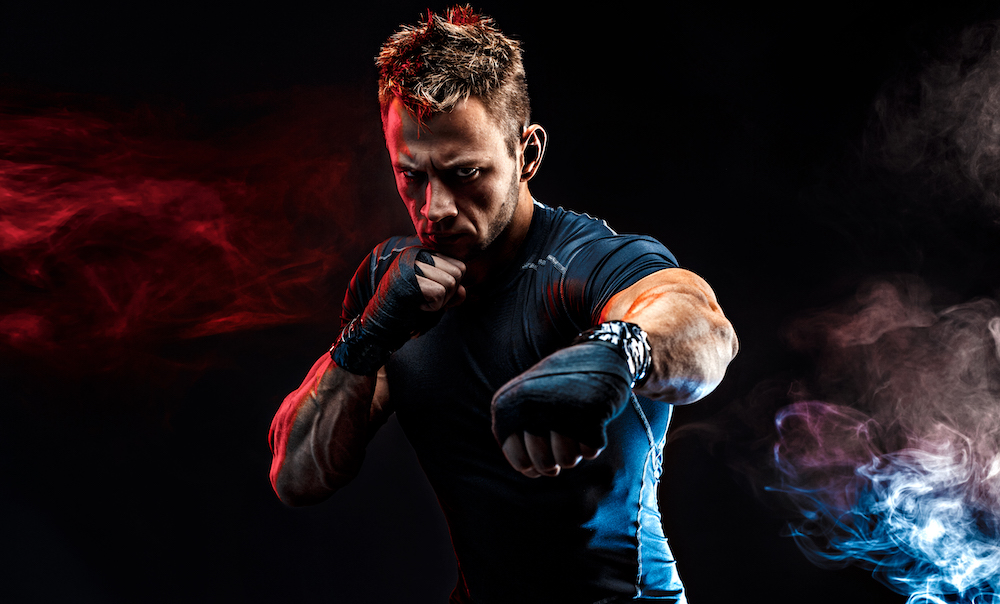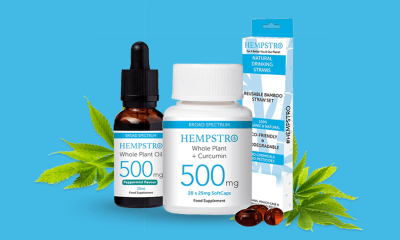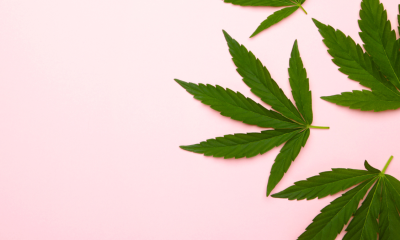LIFESTYLE
CBD and sports sponsorships – the perfect match
Andrew Mernin reports on the emerging potential of cannabis products in elite sport.
The post CBD and sports sponsorships – the perfect match appeared first on Cannabis Health News.
Everton FC could be set to join the growing list of sports clubs teaming up with CBD companies in a deal which could kick-start a cannabis sponsorship revolution in the UK.
It was reported last month that Swiss CBD firm Swissx is looking to become the shirt sponsor of the Merseyside club in a multi-million-pound deal; amid rapid growth in the cannabis products market.
The UK CBD market will be worth almost £1bn per annum by 2025, according to the Centre for Medicinal Cannabis.
With such growth comes bigger marketing budgets and the opportunity for CBD firms to buy space on sleeves and chests usually the preserve of gambling, global financial services and beer brands.
While High Street health food stores maybe off-limits due to COVID-19, online sales of CBD are buoyant.
As we reported here, partly this is down to people seeking a general fitness or wellbeing boost at a time of looming healthcare danger.
This added momentum in sales, plus the fact that many sports clubs are facing financial turmoil until normality is restored and will need every ounce of sponsorship they can muster, could create a perfect storm of opportunity for CBD firms.
A YouGov poll last August found that one in 10 UK consumers use products with legal cannabis extracts – but also that 28 per cent of Brits are considering them.
Sponsoring mass market sport could help to convert these floating voters. Then there is the normalisation, destigmatising factor.
For all the progress of the cannabis products industry and the vast body of evidence supporting CBD’s worth, old misconceptions linger on.
For example, a poll published last December found that a fifth of Brits believe CBD is illegal, while 64 per cent do not realise it can be bought in shops.
“Our prejudices and fears towards cannabis have been ingrained over many years”, said Nicola Webster of Vape UK, which commissioned the poll.
As Guy Coxall, chairman of hemp policy think tank Hemptank pointed out at the last big UK cannabis industry event pre-lockdown, there were once as many as 200 cannabis-based products available at the British pharmacy.
But the influence of the US eventually won out. Across the pond, policy had been shaped from the 1930s by Federal Bureau of Narcotics chief Harry Anslinger, and his demonisation of cannabis.
Writing in the Times Literary Supplement, David Nutt, the Edmond J Safra Chair in Neuropsychopharmacology at Imperial College London, explains: “Cannabis continued as a medicine in the UK, in direct conflict with the international policy driven by the 1934 League of Nations claim that it had no medicinal value.
“The international anti-cannabis stance was consolidated in 1961 under the UN Convention on Narcotic Drugs, where cannabis was put in Schedule 1 along with heroin. Schedule 1 drugs were defined as those with no medicinal value and possessing of great harms. But the UK stood against this policy, and continued to allow both drugs to be prescribed.
“A decade of political pressure from the USA, which demanded complete prohibition internationally, ensued, and in 1971 the UK government caved in and eliminated cannabis (though not heroin) as a medicine under the Misuse of Drugs Act.”
Of course cannabis medicine, via prescription, and CBD as part of a burgeoning health and wellbeing industry, are both legally accessible in the UK (although the former has not been forthcoming via the NHS).
But if misconceptions and fears among the British public are indeed deep-rooted then sport could be the attention-grabber needed to put them to bed.
Certainly in our interviews with cannabis product users, we regularly encounter people who feel there is a stigma and often ask to remain anonymous when we publish their stories. Sports advertising could blow away these taboos and get even more people talking about the benefits of CBD and other compounds.
It would give more airtime to the positivity of CBD and cannabis-based wellness generally, in a nation where certain influential newspapers continue to publish headlines to the contrary, with little substance or balance: like ‘One dose of THC can cause psychosis in people with no mental health history’ (debunked here) and ‘Legal cannabis oil sold in British health shops can get users high and make it dangerous to drive’ (based on a study using an astronomical dose of CBD from a university that has ignored Cannabis Health’s request for an interview).
Sports could be a powerful amplifier of the cannabis-products industries. Research published by the Journal of Advertising Research based on 52 academic papers shows that embedding ads within sport creates an emotional bond with brands, that can ultimately lead to sales.
Meanwhile, more and more elite athletes are using cannabis products for their anti-inflammatory qualities, as well as their ability to help speed up muscle recovery and improve sleep.
In 2018, the World AnitDoping Agency removed CBD from its Prohibited List, meaning athletes were free to use them.
This was a big step in terms of marketing opportunities, meaning cannabis companies could get sports stars to use their products, while promoting them at the same time.
Despite this positive move, there are relatively few athletes who openly use CBD, with combat sports being among the keenest embracers of such products.
Aurora Cannabis agreed a deal with UFC in 2019 which aimed to conduct research into how using CBD can be beneficial for athletes in terms of how their muscles recover after exercise.
This then led to fighter Alexey Oleynik becoming one of the world’s first cannabis sponsored athletes after he agreed a partnership with TFMG Alternative Harvest ETF MJ.
MMA (mixed martial arts) is another combat sport to really take to the cannabis industry, with Bellator (the world’s leading MMA league) announcing in 2019 that they would be entering a multi-million-dollar partnership with hemp company cbdMD which would give it branding rights to the sports fighting cage.
The president of cbdMD set out the aims of the deal in a press release, saying “our partnership with Bellator will facilitate a unique opportunity to educate athletes and fans about the many benefits of CBD”.
Other examples of cannabis products working their way into top-level sport come from the fairways of elite golf.
According to Golf Digest, between 15-20 leading players routinely use CBD to help their performance, with Billy Horschel being one of the few to openly admit to using these remedies.
Motorsport has also taken to the cannabis industry, with some F1 and MotoGP athletes now proudly displaying CBD company logos on their vehicles.
Cannabis/tech organisation WeedMaps now sponsors around 20 motorsports athletes, meanwhile.
Furthermore, Israel’s rugby side was sponsored by UK CBD business Provacan in 2019, making it the first international side in any sport to endorse a cannabis company.
Another instance of this is US baseball team the Portland Pickles, striking an exclusive partnership with Lazarus Naturals in 2019.
The Las Vegas Lights also made the news when it became the first football team in the US to associate itself with a cannabis brand.
The sponsorship involves Two Roots, which produces cannabis infused beer that contains THC.
Closer to home, Birmingham City FC entered a deal with Green Monkey – an organisation which produces CBD and hemp-based drinks – in which it agreed to sell products at the club’s ground.
Everton FC could soon follow in Birmingham’s footsteps if its deal with Swissx goes through, although press mutterings by the CBD company have suggested there is some reluctance from the football club’s side of the deal. And Swissx has form in dealing with this type of resistance.
Last year it attempted to acquire the naming rights of FC Barcelona’s Camp Nou stadium, but the club ultimately rejected the deal.
Chairman of the firm Alki David criticised the football club, saying it needed to embrace the industry in the same way UFC has.
Speaking to BBC Sport about the Barcelona deal, David said: “The bottom line is they are being really precious about this being a cannabis brand.
“But they’ve got to realise that UFC embraces cannabis, and other sporting leagues accept cannabis. My brand is not a fucking marijuana brand, it’s a wellness CBD brand based on health, not based on recreation.”
Unfortunately for cannabis companies looking to invest into the sporting market, this reluctance to endorse CBD products is mirrored in other elite sporting leagues outside the US.
Perhaps a deal between Everton FC and Swissx could be the catalyst for more at the top level of European sport.
There is clearly an ambition in the cannabis products industry to move into sports sponsorship, underlined by rapid growth of the sector. It is only a matter of time before these aspirations are realised on a vast scale, especially as other markets falter in the ensuing global recession.
The post CBD and sports sponsorships – the perfect match appeared first on Cannabis Health News.












